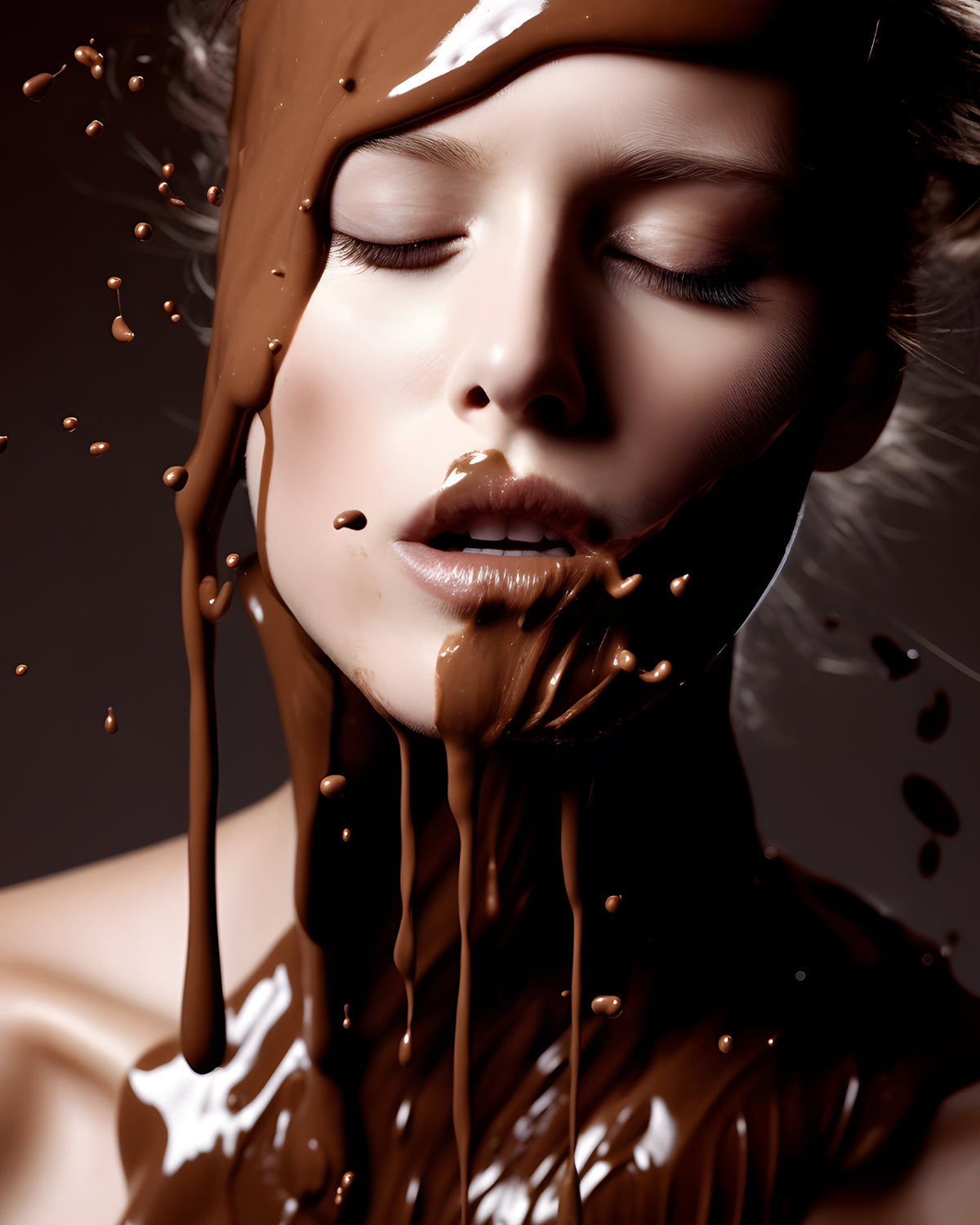
Sweet Temptation
Why do women tend to gravitate towards chocolate? This sweet, rich confection has become not just a flavor but an archetype of the female experience. Do women crave chocolate more than men, and if so, what's the science behind it? In this provocative exploration, we'll take a delectable bite out of the data and psychology behind this tantalizing phenomenon that's been the topic of many casual discussions and scientific studies alike.
The Unspoken Bond Between Women and Chocolate
Descriptive words like 'alluring,' 'pleasurable,' and 'enticing' set the perfect stage for the enduring affinity women have with chocolate. It's been suggested that it's the complex mixture of fats and sugars in chocolate that flips the brain's pleasure switches, leading to the release of powerful endorphins. But is there something more? The culture of chocolate has become interwoven with femininity, symbolizing both the highs and lows of womanhood.
In TV commercials, it’s often a woman indulging in a few squares of the stuff, eyes drifting shut in ecstasy. In popular media, chocolate is the go-to of the heartbroken, stress-eaten, and celebratory feast of women in rites of passage. Research suggests that eating chocolate releases oxytocin, the 'love hormone,' in women to a greater extent than in men. This tendency could explain the chocolate mating ritual at the heart of many romantic stories and experiences.
The affair intensifies when we examine how women tend to seek comfort in chocolate during their premenstrual and menstrual phases—moments marked by hormonal changes. The mood-enhancing benefits of chocolate can be particularly seductive during these times of the month. It's a quintessential relationship with chocolate that words can barely articulate.
How Chocolate Can Influence Desire
Chocolate cravings have often been dismissed as mere cultural convention or social construct. However, recent scientific explorations into the ingredients of chocolate have led to fascinating discoveries. Substances like anandamide, the so-called 'bliss molecule,' and phenylethylamine, a compound associated with the feeling of love, are found in cocoa. These compounds are credited for contributing to the fireworks of pleasure in the brain, and they are said to be present in greater quantities, and more efficiently absorbed by women, in chocolate.
A discussion of chocolate and desire wouldn't be complete without mentioning the caffeine and theobromine. Both are stimulants that can elevate mood and increase levels of energy. If there's a nightcap equivalent in the chocolate world, it’s the fashionable 'mocha latte'—the best of both worlds, a caffeine-infused dance with the familiar delights of chocolate.
Do these ingredients simply play with perception amidst hormonal fluctuations, or do they signify a more profound biological interplay? If anything, the subtler flavors of chocolate, particularly the darker varieties, have us candidly admitting, that it’s the chemistry that keeps us coming back for more.
The Nutritional Power of Chocolate
We find ourselves in the enviable position of being able to treat ourselves to a food that, in moderation, can offer some health benefits. Research has painted a more flattering picture of chocolate than a mere guilty pleasure: it’s a source of antioxidants, particularly dark chocolate.
Chocolate is rich in compounds known as flavonoids, which can aid in heart health by lowering blood pressure, improving blood flow, and making blood platelets less sticky, thus potentially reducing the risk of blood clots. It seems that putting on music and having a slow, small piece of high-quality dark chocolate could be as relaxing for the body as it is for the mind.
However, it's critical to underscore that moderation is key, and that the type of chocolate matters. The higher the cocoa content, the more beneficial and less sugary it tends to be, making it a choice as satisfying for the body's nutritional needs as it is for the soul's cravings.
Chocolate and Sex
A thought-provoking inquiry: Can chocolate be considered an aphrodisiac for women? A question that both flirts with innuendo and broaches a serious consideration of the relationship between chocolate, desire, and sex.
Chocolate shares some common ground with historical aphrodisiacs. Its history is steeped in ritual and is the favored choice of lovers the world over. And while science shows us that the compounds in chocolate can stimulate the pleasure centers of our brains, the question is: Do we confuse the endorphin high chocolate can bring with the joys of sexual fulfillment itself? Admittedly, the line between what we crave and what we desire is a fine one.
What seems clearer is that the shared ritual of chocolate is as much an expression of care and affection as it is an invitation to dessert— a sweet reinforcement of the bond between partners. Whether chocolate is a replacement for sex or a delicious precursor is best left to individual experience. However, what we can say with certainty is that chocolate does something special for women, providing fulfillment to cravings that extend beyond the gustatory.
Craving Chocolate at the Moment?
While we’ve barely scratched the surface of this timeless topic, one thing is clear: the sweet appeal of chocolate to women isn't going anywhere. It’s a love story that will continue to be written and unwritten, tasted and savored, craved and indulged, in a shared experience that is as genuine and resilient as any other.
To satisfy your craving, discover the delightful tastes you can create with our Dilettoso Choc-o-lotta mix. Whip up our delectable Mocha Blanket Cakes or our bold and flavorful Sassy Snickers Pancakes for an irresistible treat. You’re Welcome.



